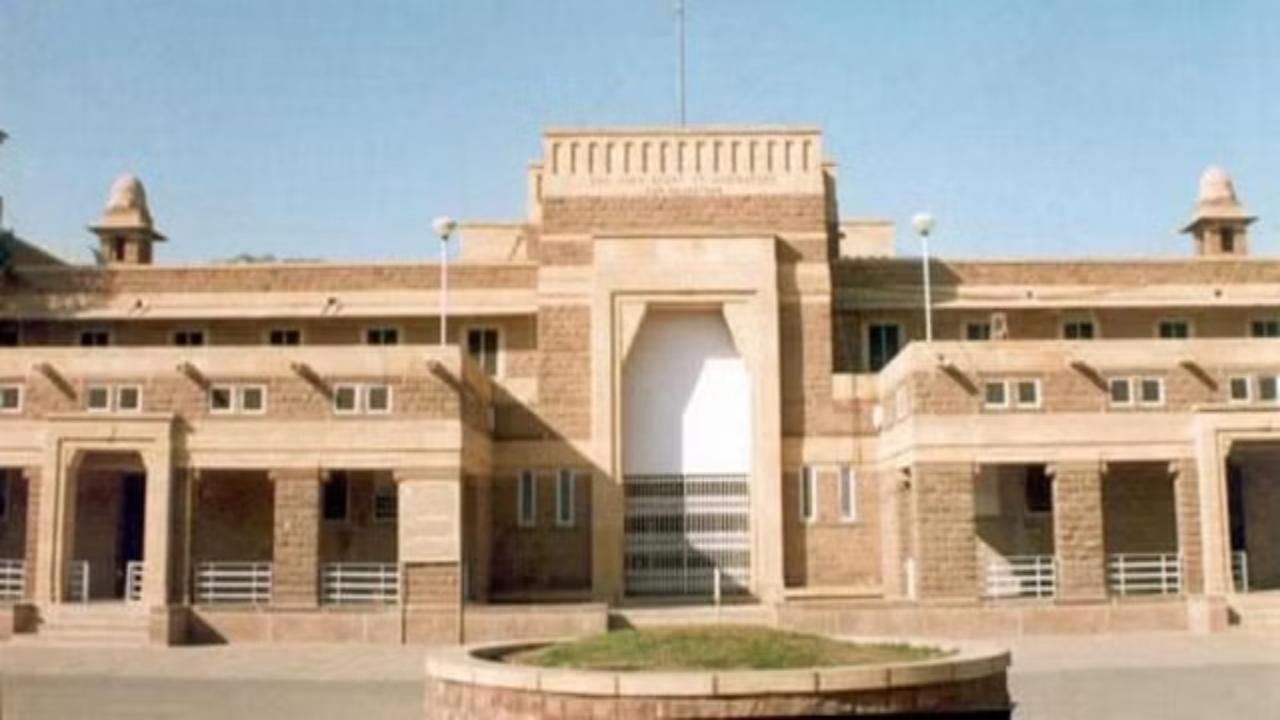The High Court acquitted them on grounds that the investigating agency (ATS) did a "shoddy investigation" in connecting the chain of evidence

File Photo/PTI
The acquittal of four men accused in the 2008 Jaipur serial blasts case by the Rajasthan High Court has come as a shock to many, including those who lost their loved ones or got themselves injured in the terror attack and are living with the bad memories.
ADVERTISEMENT
"Is this justice?" asked Rajendra Sahu, whose wife Sushila was in coma for four years due to head injuries suffered in the blast. She passed away in 2012.
"If they did not carry out blasts then who is responsible for killing 71 innocent people? Who is responsible for the deep pain of those who lost their family members or those who are still living that pain even today? If the four were not guilty then who was the guilty? This is a burning question and everyone needs an answer," Sahu said.
A lower court had given the death penalty to Mohammad Saif, Mohammad Salman, Saifur, Mohammad Sarvar Azmi in December 2019, which they challenged in the high court. On Wednesday, it acquitted them on grounds that the investigating agency (ATS) did a "shoddy investigation" in connecting the chain of evidence.
The blasts had left 71 people dead and wounded 185, when bombs went off one after another at Manak Chawk Khanda, Chandpole Gate, Badi Chaupad, Chhoti Chaupad, Tripolia Gate, Johri Bazar and Sanganeri Gate.
While an additional government counsel said the state will go to the Supreme Court against the judgment, rights activists have demanded compensation for the accused, who have spent 15 years in jail. The activists have also sought a fresh investigation of the case to ensure justice to those killed and injured in the blasts.
Sahu, the cloth merchant, said if the investigating officer did not conduct a fair probe, or there was a failure, the government should seek answers from him as to who was responsible.
"It is the state's responsibility to get us justice. I am trying to forget what happened to my family in these years. This sounds an ideal thing, but is that really practical? I feel no. It is not possible to forget what happened. I may be doing routine and normal things like it should be done, but what about things that always go in the back of my mind every now and then "Why this happened when we did not harm anyone," he said.
Sahu's wife had gone to Hanuman temple in Chandpole, one of the blast sites, to offer prasad.
Gajendra Singh Rajawat, who too had gone to pray at the Hanuman temple, said he heard a loud explosion, felt pain and then fainted. He survived the attack.
"I got 22 pellets in my body. The pain I felt then is dwarfed by the pain of acquittal of the accused," he said.
In 2019, the lower court acquitted a fifth accused Shahbaz Hussain. The state government challenged his acquittal in the high court. At the time, the four acquitted now filed an appeal against the death penalty.
On Wednesday, a division bench of justices Pankaj Bhandari and Sameer Jain termed the case "a classic example of institutional failure resulting in botched/flowed/shoddy investigation" and acquitted the four and upheld the lower court verdict for the fifth man.
The bench said it may be true that if the accused in a heinous crime go unpunished or are acquitted, a kind of agony and frustration may be caused to the society in general and to the family of the victims in particular. It said the law does not permit the courts to punish the accused on the basis of moral conviction or on suspicion alone.
SS Ali, the counsel for the accused, said the high court found the entire theory presented by the Anti-Terrorist Squad, which investigated the case, wrong. He said the case was probed by four investigating officers.
When contacted, one of the investigating officers who filed the chargesheet, refused to comment on the matter.
Additional government counsel Rekha Madnani said after approval from the state government, a special leave petition (SLP) will be filed in the Supreme Court.
Rights activists have demanded a fresh investigation into the case and compensation for the five men who had to spend 15 years in jail.
"The acquitted five should be compensated for the loss of 15 years of life spent in jail. The defamation of the family should be compensated," Kavita Srivastava of People's Union for Civil Liberties (PUCL) said.
She said action against the police team conducting the investigation should be taken and a fresh investigation should be started to give justice to the victims of the blasts.
This story has been sourced from a third party syndicated feed, agencies. Mid-day accepts no responsibility or liability for its dependability, trustworthiness, reliability and data of the text. Mid-day management/mid-day.com reserves the sole right to alter, delete or remove (without notice) the content in its absolute discretion for any reason whatsoever.
 Subscribe today by clicking the link and stay updated with the latest news!" Click here!
Subscribe today by clicking the link and stay updated with the latest news!" Click here!







